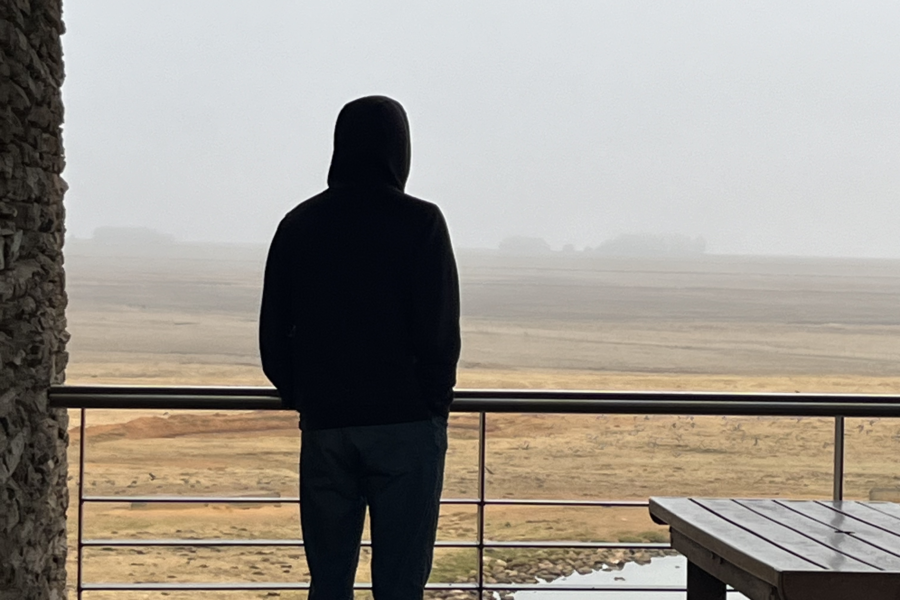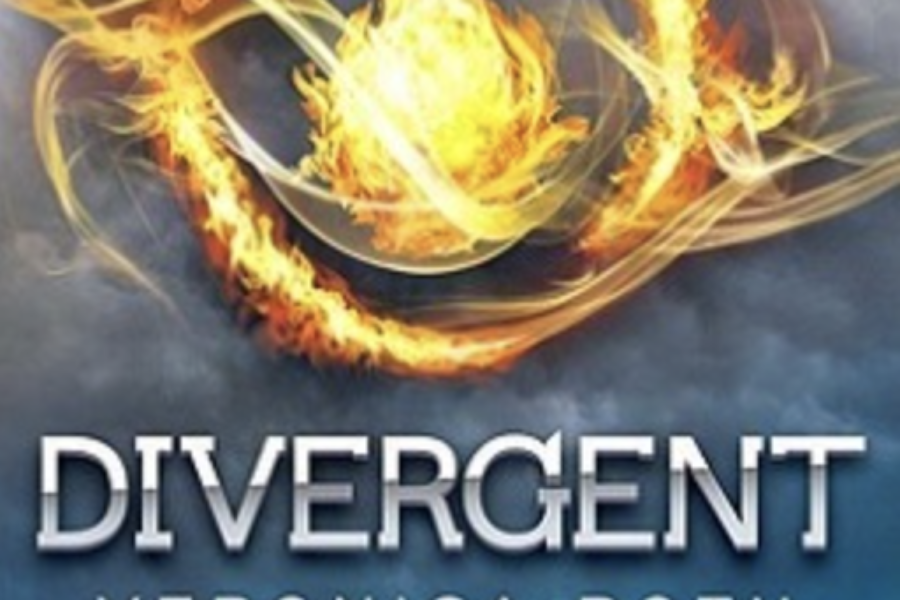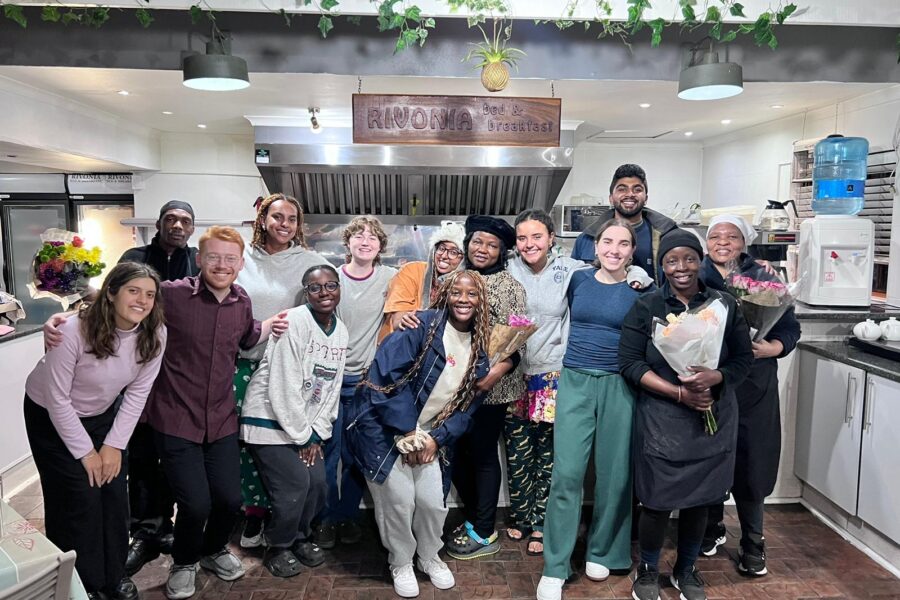Dear friend,
I hope you’re enjoying your time in South Africa now. Maybe you’ve just arrived and did icebreakers at Monte Casino. Maybe you’re halfway through and you just landed at Honeyguide Ranger Camp for the safari. Or maybe you’re like me right now, on your last night of this journey, wondering how six weeks flew by.
I’m Yusuf Rasheed, and this was my last ever Yale class. As in, I have basically graduated now. Tomorrow, I fly out of Johannesburg. In this post, I want to give you some advice about this class.
Everyone has probably told you about how amazing study abroad is. How it changed their life. How they’ll never forget this part of their Yale journey.
All of these things are true. And I want you to to have this experience. But this post isn’t rainbows and unicorns. The purpose of this post is to help you have the best time here in South Africa. What I’ve written below is loosely based off things I experienced on this trip as an individual. Of course, everyone’s time here is different. Maybe you won’t agree with any of this after you complete this course, But I am confident that there will be at least one lesson here that you can benefit from.
1. Focus on only one thing while you’re here – the program itself.
I’m applying to medical school right now. Around three weeks into this course (halfway), my applications started coming in, and I started working on them. It’s taken a lot out of me. This wasn’t a situation I could avoid, unfortunately, without making drastic decisions to my academic timeline. So I accepted it and did my best to remain positive.
Nevertheless, I wish I could have experienced this program without the burden of something else. Don’t take this as despair, self-pity, or a complaint. Rather, it is the truth. If you juggle a lot of things here, I promise you that something will be sacrificed – either this course, or the other things you are juggling. In the second half of the course, I decided to say no to many adventures that my friends went on. I made the active choice to prioritize my applications (the other thing I was juggling) over certain parts of this experience. But it had a cost. And I don’t want you to incur that cost – the solitary moments when you know you could be having fun or learning more – if you don’t have to.
So please, if you are able to make the choice to just focus on this program, PLEASE do that. I know what it is like to multitask here, and I promise you, you will wish that you had one commitment here: VAGH.
2. Get ready to actually learn – this is NOT a gut class. It will push you to think critically.
I know that lots of other study abroad programs are known for or actually have easy classes. Students from those programs will tell you that they just BS’d their assignments and focused on experiencing the country they were living in.
That is NOT the case here. This is NOT a class where you can just write random things down on psets or not pay attention in lecture. VAGH will make you actually learn. It is hard work. I would give it a 4/5 workload on CourseTable. (another reason to take point #1 above seriously).
And in my opinion, learning the material is very, very fulfilling. Both topics – global health and filmmaking – are extremely applicable to real life. There are many things you will learn here – how to make recommendations to countries facing public health crises, why it is so critical to think outside the box in epidemiology (hint: it’s because not everything you see on the surface is the full story – it is only the tip of the iceberg), how to create a professional film (hold your horses, you are not going to become Christopher Nolan over six weeks, but you WILL gain exposure to the key steps in translating a conceptual idea to a beautiful and short documentary), and why telling stories in the context of global health is so important.
You will face challenges. The material will be hard. You won’t get 100s, 90s, 80s, or maybe even 70s, on every single one of your assignments. But if you embrace the difficulty of the material and stay optimistic, you will feel so fulfilled finishing this course.
3. Be prepared for tough feedback.
You’ve probably had professors who give you wishy-washy feedback.
“Hey Prof, what do you think I could have done better here?”
“Oh, you did great! Just keep it up!”
I find that extremely frustrating. Maybe you don’t care about feedback. Again, this whole post is very subjective. But again, I think something will ring true for you.
Jonathan will give you tough feedback on your weekly assignments. It very well may be the most direct, on-the-nose feedback you will have ever received. Heck, you might even feel like crying if you’re not used to receiving such feedback.
What I will say though is that it comes from a good place. It has direct, specific, actionable ways on how you can improve. If you take it in stride, you WILL learn how to better answer questions, think critically, and write succinctly (I know I’m not writing so succinctly here). It might not feel like that on your first read-through of the comments, but when you really think about the feedback, you will see that it is ultimately for your benefit.
I urge you to have tough skin with this part of the course.
4. Take risks – this is one of the few times at Yale where you will be in a judgement-free space.
One of my proudest moments here was doing stand-up comedy at The Onesies. Even though it might seem insignificant, I am sure its greater meaning will resonate with you.
I was watching Kevin Hart clips one day while thinking about what to do for The Onesies. You know that moment where your heart is like:
YO! You could actually attempt that. Try it!
And your brain responds:
Nooooo wayy. I am not going to do that. I’m going to embarrass myself. I CAN’T do that.
And it goes back and forth:
But come one, just try it. Who knows, maybe you’ll love it.
Nah, I’m good. I want to do what I’m comfortable with. What I’m used to.
COME ON!
No.
Pleaseeeeeee?
No.
But no one is going to care!
No.
*sigh*
Don’t let the “No.” win you over. And don’t get me wrong – I have a lot of work to do in this part of my life. I am scared of risks. I’m still trying to get over my aversion to scrambled eggs. And tomatoes.
But when I performed stand-up comedy at The Onesies – even though I made a lot of mistakes, even though my hand was trembling while I was up there, even though I felt like a goofball trying to make jokes – I do know that I successfully took a risk. And that was an amazing feeling. It gives you confidence, it tells you that you CAN do what you think you can’t. And most of the time, it will actually turn out much better than you expected (despite what I listed above, it actually didn’t go terribly). And I’m really happy I did it.
So whatever you’re afraid of, but you think could actually turn out amazing – do it. (Obviously, be logical and don’t get kicked out of the course). Jump over that mental hurdle. Embrace the challenge. And seek discomfort, as the YouTube channel goes.
5. There will be moments, even days/weeks, where you will not feel infinitely happy.
This is something I feel very, very strongly about. Not just about study abroad, but college itself. Just like how people probably told you the first month of college is going to be amazing, filled with laughter, and the craziest weeks of your life, people have probably told you the same about study abroad. Again, don’t get me wrong – those are true. BUT. It is NOT the full story.
I would be shocked if you only have moments here of bliss and love. I hope that happens. I really do. But I want to be real with you. It is very likely that you will feel some pain in your heart during your six weeks here.
I want to remind you that it is OKAY to feel that way. It is OKAY for you to feel sad some days. Even if it may seem like everyone around you is having fun, even if it seems like the world is moving on without you. You might feel like you don’t want to be here at some point. And you’re double guessing your decision. Your true feelings are VALID. Don’t push them away.
That is part of the journey here. Don’t let other people make you have expectations that this is going to be a fantasy land where all your dreams come true. It’s real life, with real people, with real challenges, away from your familiar home. It’s not a reflection on any single person, or any single things. It’s just how it goes.
I know this might seem trite. It probably is. But I think someone needs to say it. Even though cliche things are, well, cliche, they are still true. And sometimes it helps to have such a reminder. I wish someone told me this before this program, so that’s why I’m telling you.
Again, it’s possible that you disagree with all of this, or you think I’m crazy, or you end up experiencing NONE of the things I wrote about. But I hope something here will be true for you.
From a fellow VAGH student to another, take care. ❤️






